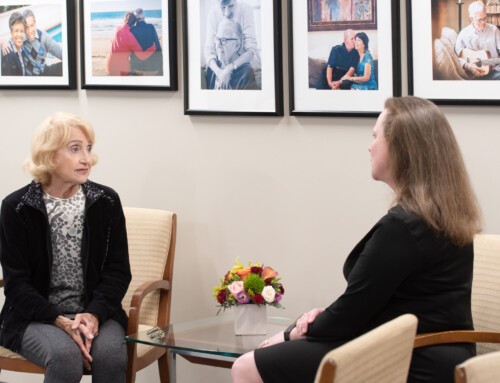The 2023 edition of the Date with a Cure research forum provided plenty of insightful information about current research and advancements that can help the Alzheimer’s community in the not so distant future. We appreciate the doctors who offered their expertise for this forum: Dr. Paul Aisen, Dr. James Brewer, Dr. Jerold Chun, Dr. Douglas Galasko, Dr. Hector M. González, Dr. Doris Molina-Henry, Dr. Michael Plopper, and Dr. Sherry Soefje.
Key Takeaways
- We’re entering the stage of slowing the progression of Alzheimer’s disease with drugs like Lecanemab and Donanemab, which are expected to be approved by the FDA this year.
- Successful trials for Lecanemab have been for people in the early stages of Alzheimer’s disease.
- APOE e4 gene: Carriers of one copy of this gene have 2x the risk of developing Alzheimer’s; if carrying two copies, there’s 6-10x risk of developing the disease.
- Current research finds that this gene is less common and presents a lower risk amongst Latinx populations; he risk also varies for African American and Asian American populations.
- There is no scientific basis for approved use of any supplements, vitamins, cannabinoids, or other advertised “treatments”; researchers urge to consider your source if any of these are presented.
- Generally higher risk of developing Alzheimer’s for Latinx and African American populations.
- Progress is being made in skin cell research, amyloid removal, and therapeutics.
- If you aren’t comfortable participating in drug-focused clinical trials, there are plenty of other trials centered around lifestyle modifications like diet and physical activity levels.
- Important for people of different demographics to participate in more clinical trials since there can be significant differences in research findings.
- UCSD Shiley-Marcos ADRC also operates the South Bay Latino Research Center in Chula Vista to reach more diverse populations.
To hear more in-depth details about each of these takeaways and the numerous other topics discussed, watch the full Date with a Cure webinar here:
View our clinical trials page and clinicaltrials.gov to find opportunities in San Diego to participate in. Check out all of our free services and call 858.492.4400 to talk to one of our Clinical Care Coaches who can walk you through any dementia questions you may have.
By Braulio Ambriz




